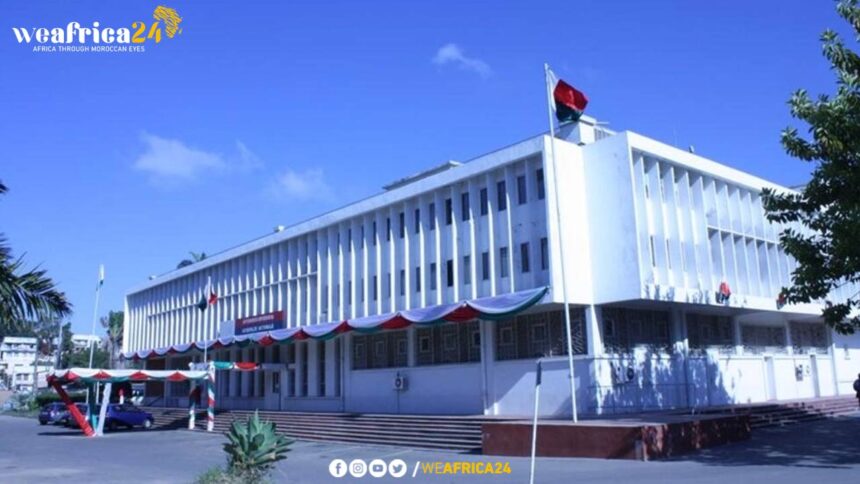The few Malagasy deputies present at the National Assembly voted unanimously, in just 30 minutes and without any amendments, to pass the revised finance bill. This bill, highly contentious and intriguing due to its extensive budget cuts, was only presented to the deputies by the government on Friday, June 7th.
Out of the 151 deputies in the Assembly, only 64 were present for the vote, a low turnout partially attributed to a scheduling conflict. Many deputies, candidates for re-election, were preoccupied with finalizing their applications for submission to the High Constitutional Court by 3 PM the same day.
Despite the mix of pro-regime members and a few opposition deputies, all present voted unanimously and expeditiously, without debate. This hasty approval, given that deputies had 30 days to review the text, has once again disappointed civil society, which had hoped for more thorough analysis from the elected officials.
Hony Radert, a specialist in finance bills with the Collective of Citizens and Citizen Organizations, expressed concerns over the bill’s opaque elements. “In principle, reducing expenses is positive. But in Madagascar today, we need investments in priority sectors. The government has stated its intention to prioritize human capital, which is commendable. However, what concerns us is the lack of recruitment in education and healthcare while maintaining recruitment in law enforcement. The critical shortage of doctors and teachers implies further setbacks for the development of our children and, consequently, the country’s development.”
Another concern is the significant decline in external investments, including subsidies, donations, and loans from technical and financial partners (PTFs). “Why these drastic reductions? Is there a loss of confidence from the donors towards the state? We don’t know. Questions must be asked, and it is up to the state and the PTFs to provide answers to understand the country’s direction,” Radert added.
Civil society is also questioning the unprecedented increase in the energy sector’s budget, presumably allocated to Jirama, the state-owned utility company. Hony Radert pointed out the persistent burden on Malagasy citizens to subsidize this heavily indebted public company. “Currently, we lack a clear and transparent recovery plan outlining the duration and financial commitments required. We must demand this transparency from the authorities,” emphasized the finance law expert.
The revised finance act’s rapid passage and its implications on critical sectors continue to raise significant concerns among the populace and civil society, highlighting the need for greater transparency and accountability in governmental financial planning.







